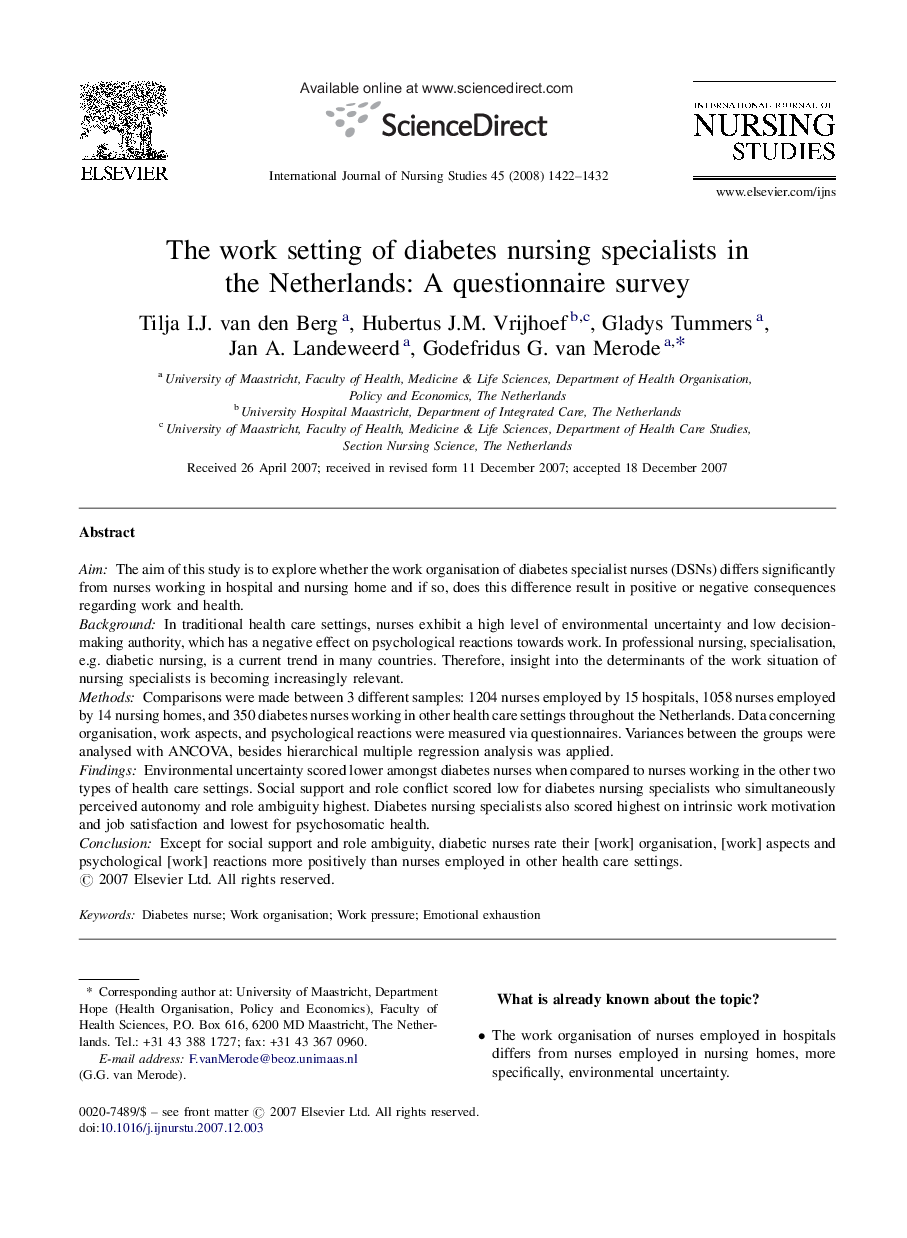| Article ID | Journal | Published Year | Pages | File Type |
|---|---|---|---|---|
| 1077766 | International Journal of Nursing Studies | 2008 | 11 Pages |
AimThe aim of this study is to explore whether the work organisation of diabetes specialist nurses (DSNs) differs significantly from nurses working in hospital and nursing home and if so, does this difference result in positive or negative consequences regarding work and health.BackgroundIn traditional health care settings, nurses exhibit a high level of environmental uncertainty and low decision-making authority, which has a negative effect on psychological reactions towards work. In professional nursing, specialisation, e.g. diabetic nursing, is a current trend in many countries. Therefore, insight into the determinants of the work situation of nursing specialists is becoming increasingly relevant.MethodsComparisons were made between 3 different samples: 1204 nurses employed by 15 hospitals, 1058 nurses employed by 14 nursing homes, and 350 diabetes nurses working in other health care settings throughout the Netherlands. Data concerning organisation, work aspects, and psychological reactions were measured via questionnaires. Variances between the groups were analysed with ANCOVA, besides hierarchical multiple regression analysis was applied.FindingsEnvironmental uncertainty scored lower amongst diabetes nurses when compared to nurses working in the other two types of health care settings. Social support and role conflict scored low for diabetes nursing specialists who simultaneously perceived autonomy and role ambiguity highest. Diabetes nursing specialists also scored highest on intrinsic work motivation and job satisfaction and lowest for psychosomatic health.ConclusionExcept for social support and role ambiguity, diabetic nurses rate their [work] organisation, [work] aspects and psychological [work] reactions more positively than nurses employed in other health care settings.
